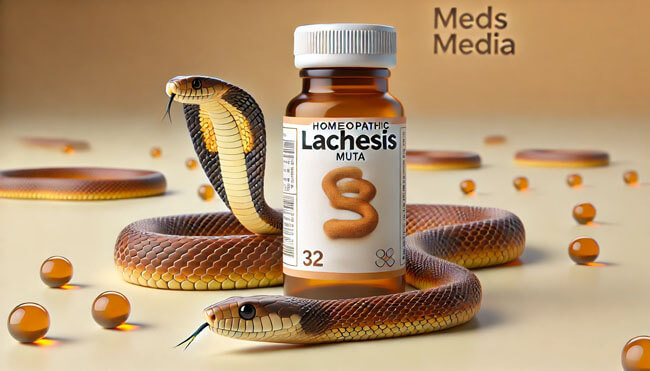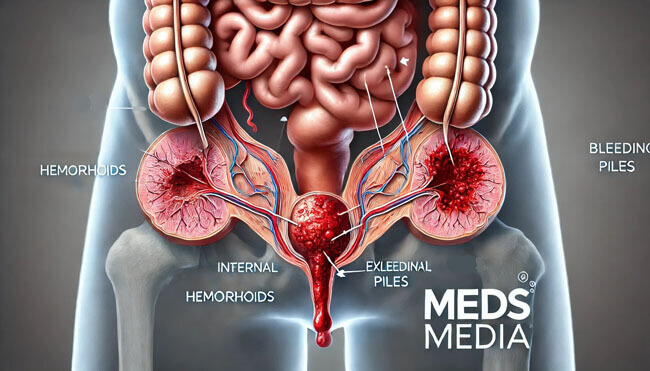Introduction
Cocaine addiction is a serious and growing problem worldwide, affecting not only the individual but also their families and society as a whole. Conventional treatments for addiction, such as counseling, behavioral therapy, and medical interventions, have been widely used, but complementary approaches like homeopathy are also being explored. This article delves into how homeopathy, an alternative medical system, can potentially serve as a complementary treatment for cocaine addiction.
In this article, we will discuss cocaine addiction, explain how homeopathy works, and examine homeopathic remedies that could help manage cocaine cravings. Additionally, we’ll review studies conducted to evaluate the effectiveness of homeopathy in treating cocaine addiction.
Cocaine Addiction: Overview and Challenges
What is Cocaine Addiction?
Cocaine addiction, or cocaine use disorder, is a condition characterized by the compulsive use of cocaine despite harmful consequences. Cocaine is a powerful stimulant drug that increases levels of dopamine in the brain, leading to intense euphoria, heightened energy, and alertness. However, the short-lived high often drives users to seek more, leading to a dangerous cycle of dependency.
Symptoms and Effects of Cocaine Addiction
Cocaine addiction manifests in several ways, including:
- Physical Symptoms: Increased heart rate, dilated pupils, high blood pressure, restlessness, insomnia, and in severe cases, heart attack or stroke.
- Behavioral Changes: Intense cravings, compulsive drug-seeking behavior, irritability, mood swings, and withdrawal from social activities.
- Mental Health Issues: Anxiety, paranoia, hallucinations, depression, and cognitive decline.
Cocaine addiction often results in severe damage to the individual’s physical and mental health, and conventional treatments like detoxification, cognitive-behavioral therapy, and medications may not always yield lasting results.
How Homeopathy Works: A Brief Overview
What is Homeopathy?
Homeopathy is a system of alternative medicine based on the principle of “like cures like.” This means that substances that produce symptoms in a healthy person can, in very diluted forms, treat similar symptoms in a sick person. Homeopathic medicines are prepared through a process of serial dilution and vigorous shaking (succussion), which homeopaths believe enhances the remedy’s healing properties without causing side effects.
The Potency of Homeopathic Remedies
Homeopathic remedies are available in different potencies, which refer to how diluted the substance is. The three common scales of dilution are:
- Decimal (D) – Diluted 1 part in 10.
- Centesimal (C) – Diluted 1 part in 100.
- Fifty-millesimal (LM or Q) – Diluted 1 part in 50,000.
Homeopathy is widely used in Brazil, India, Europe, and other countries as a complementary and alternative medicine (CAM) approach for various conditions, including addiction.
Homeopathy and Cocaine Addiction: Can It Help?
While the traditional treatment for cocaine addiction focuses on detox, behavioral therapies, and medication, homeopathy offers a complementary path. Although there’s limited scientific evidence on its efficacy, some believe that homeopathy can support the reduction of cravings and withdrawal symptoms. Below are some homeopathic remedies that may aid in treating cocaine addiction.
Homeopathic Remedies for Cocaine Addiction
1. Opium
- Indication: Cocaine cravings and nervous system disorders
- Symptoms: Anxiety, restlessness, delirium, excessive sleepiness followed by sleeplessness, mood swings
- Uses: Traditionally used in homeopathy to calm the nervous system and reduce intense cravings or hallucinations.
Study Reference
A study in São Paulo, Brazil, tested Opium 2 LM in the treatment of cocaine craving. While the study did not yield significant results due to low patient adherence, some patients reported a decrease in the length of their cravings.
2. Erythroxylum Coca
- Indication: Cocaine withdrawal symptoms and cravings
- Symptoms: Mental exhaustion, irritability, anxiety, depression, and an intense urge to use cocaine.
- Uses: Commonly used to help curb cravings, improve mental clarity, and alleviate withdrawal symptoms.
Study Reference
In the same São Paulo trial, Erythroxylum coca 2 LM was used alongside Opium, showing a slight reduction in craving episodes but no significant statistical differences from the placebo group.
3. Nux Vomica
- Indication: Dependency and overindulgence in stimulants
- Symptoms: Irritability, restlessness, gastrointestinal discomfort, and craving for stimulants like cocaine.
- Uses: Nux Vomica is used in homeopathy for people struggling with addiction, especially those who are irritable, overworked, and prone to excesses in food, alcohol, or drugs.
4. Avena Sativa
- Indication: Nervous system exhaustion and drug withdrawal
- Symptoms: Nervousness, weakness, insomnia, and restlessness, commonly associated with drug withdrawal.
- Uses: Avena Sativa is used to calm the nervous system, improve sleep, and reduce cravings for stimulants.
5. Ignatia Amara
- Indication: Emotional trauma, anxiety, and mood swings
- Symptoms: Grief, sudden mood changes, depression, and nervousness.
- Uses: Often used for emotional instability that accompanies withdrawal and cravings, helping to stabilize mood and reduce anxiety.
6. Lachesis Mutus
- Indication: Cocaine addiction with psychological symptoms
- Symptoms: Paranoia, suspiciousness, restlessness, and mood swings.
- Uses: Used in cases where the individual experiences severe psychological symptoms, such as paranoia and distrust, often seen in cocaine addiction.
Case Study: Homeopathy for Cocaine Addiction in Brazil
Background of the Study
A study was conducted in São Paulo, Brazil, to test the effectiveness of homeopathic remedies for cocaine cravings. The trial took place at Centro de Referência de Álcool, Tabaco e Outras Drogas (CRATOD) in an area known for its high prevalence of drug use, including cocaine. The study was approved by the Ethics Committee of Universidade Federal de São Paulo (Unifesp) and was registered under the Brazilian Clinical Trials Registry.
Study Design
- Duration: 4 weeks
- Participants: 42 patients diagnosed with cocaine dependency
- Intervention:
- Homeopathy group: Treated with conventional therapies and Opium 2 LM for the first two weeks, followed by Erythroxylum Coca 2 LM for the next two weeks.
- Placebo group: Received conventional treatment and a placebo (sugar pill).
Results
Out of the 42 participants, only 23 completed the trial due to low adherence. The results indicated no significant difference between the homeopathy and placebo groups in reducing cocaine cravings. However, some patients in the homeopathy group reported feeling that the medicine helped reduce the duration and intensity of their cravings.
Conclusion
While the trial didn’t show clear evidence of homeopathy’s effectiveness for cocaine addiction, it suggested that homeopathy might help some individuals, especially when used as part of a broader treatment plan. More extensive studies are needed to confirm these findings.
Insights and Future Directions
While homeopathy as a complementary treatment for cocaine addiction shows promise, more robust and larger-scale studies are needed. Combining homeopathy with conventional treatments could enhance patient outcomes, especially for those who prefer holistic approaches to healthcare.
Here are a few points to consider for future studies and treatments:
- Larger Sample Sizes: To better understand the potential of homeopathy, larger studies with more participants are essential.
- Patient Adherence: Ensuring higher patient adherence to treatment protocols is critical for producing reliable results.
- Individualized Treatment: Homeopathy often works best when tailored to the individual’s symptoms, so a more personalized approach may be needed in treating addiction.
- Integration with Conventional Therapies: Homeopathy should be viewed as a complementary treatment rather than a replacement for conventional addiction therapies.
Conclusion
Cocaine addiction is a complex and challenging condition to treat, but exploring complementary treatments like homeopathy offers new hope for individuals seeking holistic options. While current evidence on homeopathy’s effectiveness for cocaine addiction is limited, some remedies, such as Opium, Erythroxylum Coca, and Nux Vomica, may offer relief from cravings and withdrawal symptoms.
As the field of complementary medicine continues to evolve, homeopathy could become a valuable part of a comprehensive addiction treatment plan. However, larger studies and more research are needed to fully understand its potential benefits. For now, individuals interested in exploring homeopathy should consult with qualified professionals and consider it as a complementary addition to conventional treatments.
Why Meds Media guides are different
We focus on clear, practical explanations of homeopathic and natural health topics so you can understand remedies, symptoms, and lifestyle changes in simple language.
Meds Media is an educational resource only. Always consult a qualified doctor or homeopathic practitioner before starting, stopping, or changing any treatment.
Similar Posts You may also like

LM Potencies in Homeopathy Explained | Insights from the 6th Edition of the Organon

Blood Clot in Eyes: Symptoms, Homeopathic Treatment & Prevention

Lachesis Homeopathic Medicine & Personality | Uses, Benefits & Indications

Homeopathy Medicines for Pregnancy Care

Homeopathic Remedies for Motion Sickness

Homeopathic Remedies for Bleeding Piles: Indication, Symptoms and Uses

Homeopathic Remedies for Hay fever Relief

Homeopathic Remedies Derived from the Fungi Kingdom

Top 10 Homeopathic Remedies for Sore Throat Relief

Homeopathic Remedies Derived from the Bacteria Kingdom
Source of Homoeopathic Medicine
What Are Common Symptoms of Autoimmune Disease?
Opium Homeopathic Medicine & Personality | Uses, Benefits & Indications

Ignatia Amara Homeopathic Medicine & Personality | Uses, Benefits & Indications

